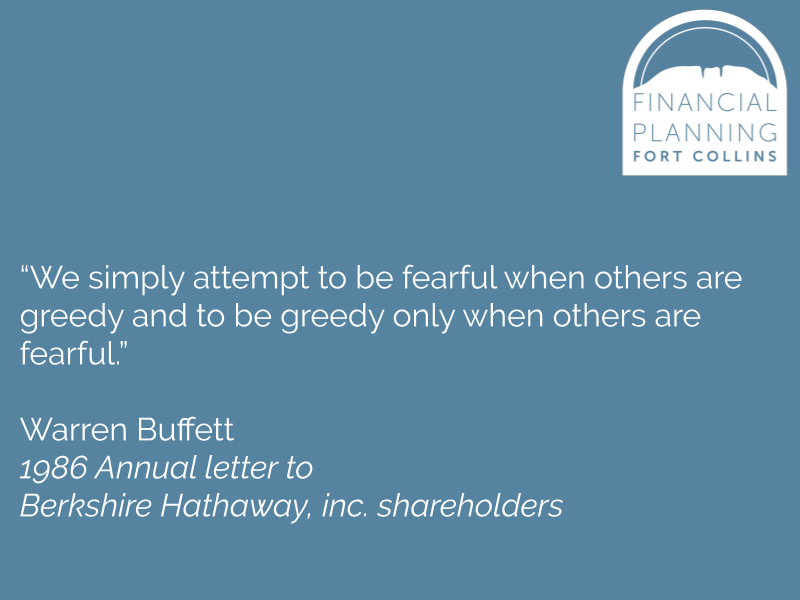
Some people react in these situations and let their emotions dictate their portfolios by moving into cash. However, successful investors like Warren Buffett, also known as the Oracle of Omaha, consistently rely on one trait to navigate nerve-wracking times. The simple trait: optimism.
This optimism refers to the belief that things will get better and that companies will bounce back. As seen during the 2008 financial crisis, Buffett invested in many companies like Mars, Goldman Sachs, BNSF Railroad, and others when people were frozen with fear. These investments through Buffet’s company, Berkshire Hathaway, proved successful since 2008 because we witnessed multiple years of economic growth. Buffett didn’t let the world’s fear during the Great Recession freeze him from investing for a long-term horizon — a time horizon that saw the Great Recession as a buying opportunity.

As of writing, Buffett’s net worth is around $70 billion, and he has gained his fortune by investing in companies. Instead of earning a “hedge fund shark” persona, similar to figures like Gordon Gecko from the movie, Wall Street, Buffett comes across like a goofy grandpa. You can’t imagine him saying Gecko’s famous phrase, “greed is good,” since Buffet’s one of the founders of The Giving Pledge movement, which encourages billionaires to give substantial sums of their net worths to charities.
Don’t just take my word for it. Read this summary on how Buffett’s mind works. The data researcher analyzed the ratio of positive to negative words in Buffett’s annual letters to Berkshire Hathaway shareholders.
Another illustration of Buffett’s positive mindset:
▶︎ “Your success didn’t create your optimism; your optimism led to your success.” A quote about Buffet written by Melinda Gates in her foundation’s annual letter.
The Connection Between Investing and Optimism
We invest our hard-earned money so it can grow over time. If we weren’t optimistic about our money growing, then why invest in the first place? You already have this optimism when it comes to investing!
Let me explain my own personal investment philosophy, which I use to help clients.
▶︎ A larger and stronger middle class benefits everyone: people, companies, and your investments. I believe large numbers of poverty-stricken populations in the United States and around the world will become middle-class citizens. For example, in China, we see a migration of agricultural populations abandoning their traditional lives to adopt an urban way of living. These new city dwellers become middle-class citizens by working as entrepreneurs or for other businesses, buying condos, and shopping at grocery stores to support their new lives. This new shopping behavior in turn creates more profits for the companies selling goods and services to these populations. The many companies selling to these consumers are represented on the financial markets. These companies earn more money over time by selling more goods to populations no longer living in poverty. As a result, more revenues for publicly traded companies typically means higher valuations for their stock. To summarize, more people buying stuff means publicly traded companies become more valuable.
Fun Fact: Bill and Melinda Gates mentioned that the world’s population in extreme poverty has been cut by 50% since 1990 in their 2017 annual letter.
Have Hope in Uncertainty
We position our portfolios to reflect that this worldwide progress will be the long-term philosophy for our investments and the wealth of the world. Yet that progress won’t be a straight line up. Market corrections and challenges will occasionally make us all nervous. One of the only guarantees we can give is that markets will be scary at times.
However, we encourage you to think like Warren Buffett and adopt optimism for your investments. This hope during uncertain times can help you stay the course and navigate the scary times with a more positive mindset.
This article gives you a glimpse of the “Create an Investment Plan” module from FPFoCo Academy. Access these personal finance modules by becoming a client.
